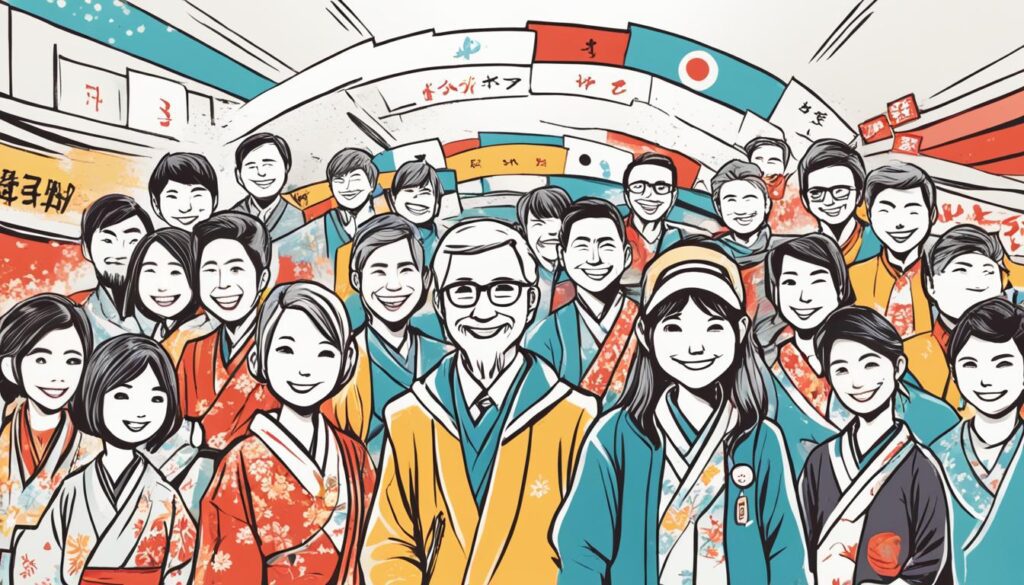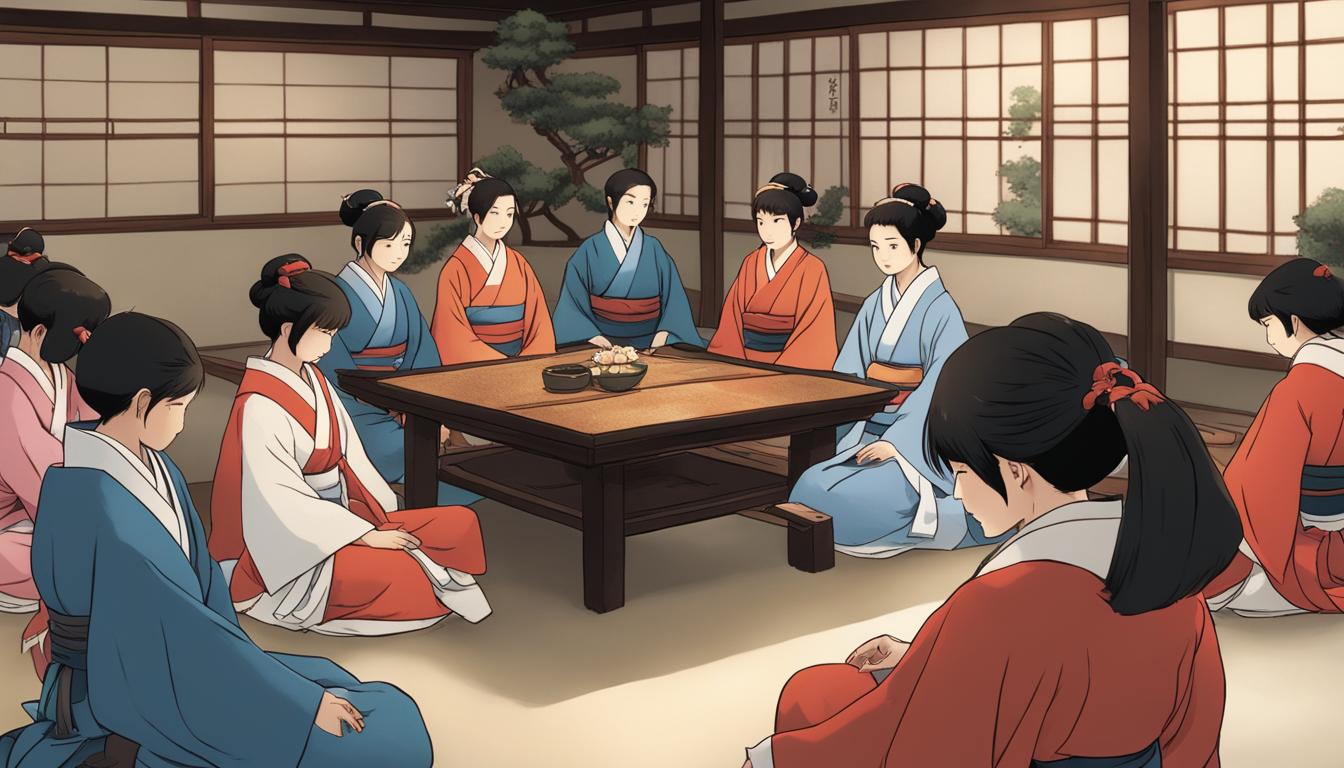If you’ve ever delved into Japanese culture or interacted with anime and manga, you might have come across the term “senpai.” But what does senpai actually mean in Japanese? In this article, we will explore the meaning, grammar, pronunciation, and cultural usage of the word senpai.
The Role of Senpai in Japanese Society
In Japanese society, the concept of senpai holds great importance. Senpai refers to someone who has more experience, knowledge, or seniority in a particular field or organization. It is commonly used in academic settings, such as schools or universities, where upperclassmen are referred to as senpai by their juniors. Senpai can also be found in workplaces, clubs, and other social groups, where it signifies a higher status or position. The senpai-junior relationship is characterized by respect, mentorship, and guidance. Senpai are expected to provide support and advice to their juniors, while juniors show deference and respect to their senpai.
This hierarchical structure reinforces the values of respect, discipline, and obedience within Japanese society. Senpai serve as role models for their juniors, setting an example through their actions and accomplishments. The guidance and mentorship of senpai play a vital role in the personal and professional development of their juniors. It fosters a sense of camaraderie, unity, and shared responsibility.
The role of senpai extends beyond mere seniority or authority. Senpai are seen as trusted confidants and advisors, providing guidance not only in a professional capacity but also in personal matters. They offer support during challenging times and help their juniors navigate the complexities of life. This mentorship creates a strong bond between senpai and junior, built on mutual trust and respect.
Furthermore, the role of senpai in Japanese society embodies the spirit of collectivism and the belief in harmonious group dynamics. Senpai act as connectors, bridging the gap between different age groups and fostering a sense of solidarity within the community. This is particularly evident in traditional practices such as kohai-sempai parties, where juniors express their gratitude and appreciation to their senpai.
The senpai-junior relationship in Japanese society reflects the values of hierarchy, respect, mentorship, and community that are deeply ingrained in Japanese culture. It exemplifies the importance of mutual support, guidance, and shared responsibility for the overall well-being and success of individuals and society as a whole.
Senpai in Japanese Etiquette
In Japanese etiquette, the use of senpai is an important aspect of showing respect and maintaining hierarchical relationships. The senpai-junior dynamic is deeply ingrained in Japanese culture, and it is vital to adhere to proper etiquette when addressing or interacting with a senpai.
It is customary to use appropriate honorifics, such as -san or -sama, when addressing a senpai. These honorifics elevate the status of the senpai and demonstrate the speaker’s respect. For example, if your senpai’s name is Aya, you would address her as “Aya-san” to show deference.
Senpai are seen as role models and mentors, and their guidance and advice are highly valued. When seeking guidance from a senpai, it is essential to approach them with humility and gratitude. Use polite language and gestures, expressing your appreciation for their assistance.
The senpai-junior relationship is built on trust and mutual respect. Juniors should follow their senpai’s instructions and guidance diligently. It is also important to show respect for the senpai’s achievements and experience.
When in doubt about how to address or interact with a senpai, observe the behavior of others and follow suit. Show humility, respect, and a willingness to learn, and you will earn the trust and respect of your senpai in return.
Senpai’s Transition to English

The term senpai has gained recognition among English-speaking communities, especially those influenced by Japanese anime and manga. In English, senpai has acquired a romantic connotation, often used to express unrequited love or admiration for someone older or more experienced. However, this English usage differs from the neutral meaning of senpai in Japanese culture, where it simply signifies a senior or mentor.
The appropriation of senpai in English reflects the influence of Japanese pop culture and the adoption of certain terms and expressions. It highlights the cross-cultural exchange that occurs through media and entertainment. However, it is important to note that the English usage of senpai may not fully capture its original meaning in Japanese.
The Evolution of Language and Cultural Exchange
The evolution of language and cultural exchange has always been a fascinating aspect of human interaction. It is through this dynamic process that words and concepts are borrowed, adapted, and shared between different cultures. A prime example of this phenomenon can be seen in the word “senpai,” which has made its way from Japanese culture into the English-speaking world.
The adoption of the term “senpai” in the English language is a testament to the influence of Japanese culture on a global scale. As people around the world became exposed to Japanese anime, manga, and other forms of media, they encountered the term “senpai” and embraced its unique meaning. In Japanese culture, “senpai” refers to someone who is your senior, a mentor or a role model who you show respect to. This concept resonated with English-speaking communities, leading to the incorporation of “senpai” into their vocabulary.
Similarly, the constant exchange of language and cultural elements has led to the emergence of new terms and expressions. In the case of English and Japanese, many English words have been borrowed and adapted into Japanese, resulting in a phenomenon known as “wasei eigo” or “Japan-made English.” This fascinating interplay between languages showcases the interconnectedness of societies and the dynamic nature of language itself.
As we continue to navigate the evolving landscape of language and culture, it is essential to maintain cultural appreciation and understanding. The adoption of words like “senpai” enriches the global linguistic landscape and provides an opportunity for cross-cultural learning and exchange. By embracing and respecting the languages and cultures of others, we can further promote a sense of unity and global interconnectedness.

